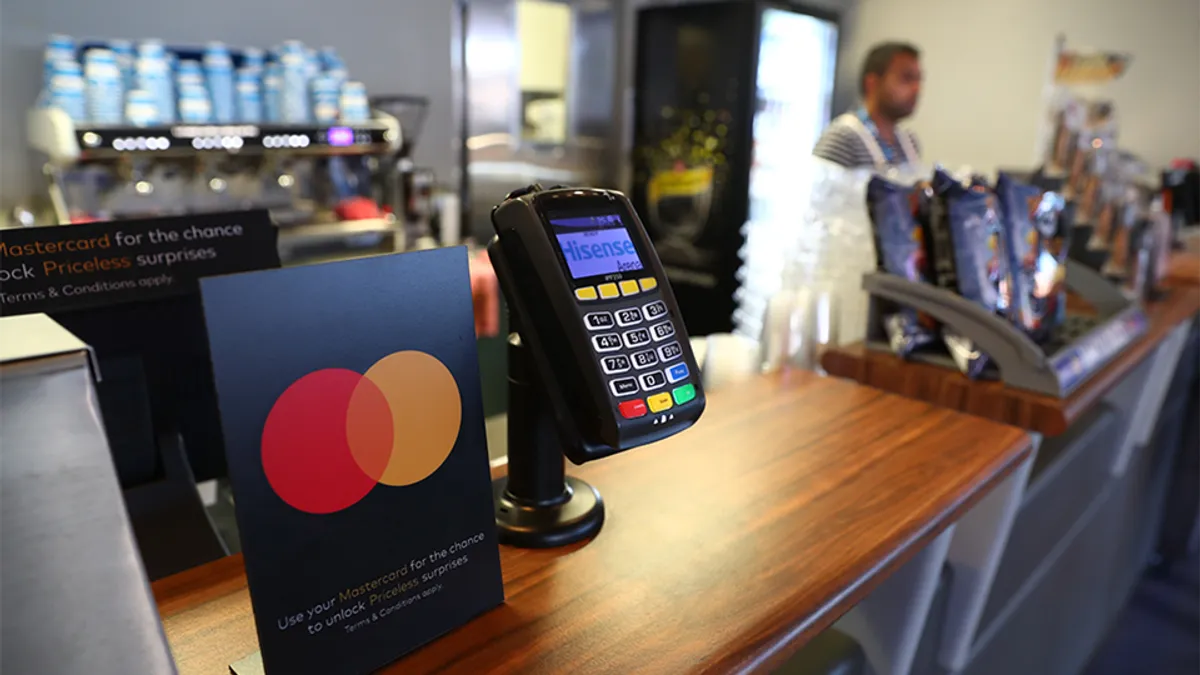Dive Brief:
- No. 2 card company Mastercard said today consumer spending remains robust, as the company reported second-quarter results showing nearly 60% growth in cross-border volumes year-over-year.
- “Overall, the consumer and consumer spending patterns are very healthy,” Chief Financial Officer Sachin Mehra said during the company’s second quarter earnings conference call. However, while affluent U.S. consumer spending remains strong, the company has noticed a “declining trend” in the growth rate of spending by lower-income U.S. consumers, he said.
- Mastercard reported that second-quarter net income rose 10% to $2.3 billion over the same period last year, per a Thursday news release. The company’s net revenue also rose to $5.5 billion for the quarter, up 21% over the second quarter of 2021.
Dive Insight:
During its second quarter earnings conference call with analysts, Mastercard executives said increases in cross-border volume, gross dollar volume and switched transactions all fueled revenue growth in the quarter.
The Purchase, New York-based company expects to continue to see improvement in cross-border travel trends, CEO Michael Miebach and Mehra noted. From a cross-border travel standpoint, Asia-Pacific has lagged compared to other regions. But as countries in that area open their borders, “there’s a lot of room to grow there,” Mehra said. When “barriers towards travel are lifted, people get on the road again,” he explained.
The suggestion that the current travel boom is a bubble “doesn't make any sense,” Miebach said, because consumers will want to continue getting out and seeing family and friends. The company’s portfolio is positioned to “capitalize on the continued recovery in travel,” he added.
The CEO noted the benefit of new travel partner programs, including with Marriott International hotels and the airline Virgin Atlantic. “Everything we’ve won in the last two years is going to come to bear to make the most of this,” Miebach said.
Mehra said the company’s metrics “are holding up well in July,” but noted growth going forward will face tougher year-over-year comparisons, as they are put up against previous quarters when COVID-19-related restrictions began to ease and spending began rebounding.
As the federal government takes steps to relieve inflation, “we will continue to watch the environment closely” and “be nimble in managing our expenses,” Miebach said. Mastercard has “the flexibility to respond quickly across a number of levers” as demonstrated during the pandemic, he added, but the company plans to continue to invest in the business with growth in mind.













